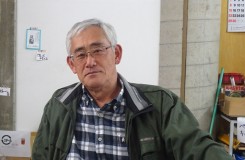
- 記事一覧
- ゲストライター記事一覧
- Myanmar after Military Coup Part 1 (軍事クーデター後のミャンマー①)
Myanmar after Military Coup Part 1 (軍事クーデター後のミャンマー①)

After the military coup of 1st February 2021, Myanmar fell into a political crisis and significant repercussions rapidly on declining social security and deteriorating economic situations. Myanmar remain dire and inflicted deep scars on the country's economy, pushing nearly half of the population into poverty and erasing years of progress. With public services failing, humanitarian needs soaring and the regime facing mounting pressure, Myanmar's future hinges on a transition to a federal democracy and an end to military rule.
What are Current main actions of military on citizens?
The military junta in Myanmar is currently escalating its violent crackdown and indiscriminate attacks against civilians across the country in a desperate attempt to cling to power amid growing armed resistance. Current main actions being taken by the military junta are:
1. Imposing Military Conscription: In February 2024, the junta issued an order to enforce the 2010 People's Military Service Law, allowing for mandatory military conscription of men aged 18-35 and women aged 18-27. The junta aims to conscript 5,000 individuals per month starting April 2024 to replenish its depleted ranks due to troop losses and defections. (*1)That order widespread fear among Myanmar's youth and one of the significant reasons that force them leave from the country and their family.
2. Intensifying Indiscriminate Airstrikes: The military has conducted numerous indiscriminate airstrikes on civilian areas, villages, displaced persons camps, schools and other civilian infrastructure across Myanmar. One of the deadliest attacks was in April 2023 when at least 168 civilians were killed in an airstrike on an anti-coup event in Sagaing region. (*2)Moreover, in March 2024, junta airstrikes destroying schools in the Karen National Union (KNU) area of Bilin Township, and in recently several indiscriminate airstrikes and attacked on civilian of Kayin and Mon States such as Myawaddy, Damatha, etc. Ethnic armed groups like KNU, the Arakan Army and local PDFs have intensified fighting against the junta, leading to civilian casualties from indiscriminate shelling and airstrikes.(*3)
3. Escalating Brutal Tactics: The junta forces have escalated brutal tactics like massacres, burnings, beheadings and arbitrary killings of civilians across Myanmar. According to the Armed Conflict Location and Event Data Project (ACLED), which aggregates conflict data from open-source material, at least 50,000 people have been killed in Myanmar since the launch of the military’s attempted coup in 2021, including at least 8,000 civilians and also including about 578 children, in over 200 massacres committed by junta troops since the 2021 coup. Cases of beheadings have been documented by rights groups. (*4)The military has killed civilians through its brutal crackdown on dissent and over 26,560 people have been arrested on political grounds, with nearly 20,000 still detained as of April 2024, estimated by Assistance Association for Political Prisoners (AAPP) many subjected to torture. At least nearly 3000 individuals, including over 100 of women, have died in military custody since the coup.
4. Blocking Humanitarian Aid: The military continues to block humanitarian aid access to many displaced populations across conflict zones. Over 2.7 million people remain displaced within Myanmar and 18.6 million people in need of aid, due to escalating conflict and the military’s blockades on humanitarian assistance as of early 2024. (*5)Arbitrary arrests, torture, and extrajudicial killings by the military have become widespread, amounting to potential crimes against humanity.
How Myanmar harmful by Economically and Socially as Military coup
As of early 2024, Myanmar remains engulfed in a spiraling armed revolutionary conflict, a deepening humanitarian catastrophe, widespread human rights violations by the military junta, and an inadequate international response to resolve the crisis and support the democratic movement and country continues to suffer severe economic and social consequences.
Economic Impact
Myanmar's economy has been "permanently scarred" by the coup and ensuing conflict, according to the World Bank. The military coup had a devastating impact on the country's economy, leading to a severe contraction in GDP, soaring inflation and unemployment, a plummeting exchange rate, and a collapse in foreign direct investment (FDI) and trade and then rent-seeking behavior has increased due to discretionary policies. The key economic impact are:
1. GDP Contraction: Myanmar's GDP contracted by a staggering 18% in 2021 due to the coup and ensuing conflict. The World Bank estimates it is unlikely Myanmar will reach pre-coup GDP levels until 2027 or 2028, leaving the economy "permanently scarred". Economy is expected to grow just 1 per cent in the year to March 2024, according to the World Bank report (Dec, 2023), describing a “broad-based slowdown” across its key sectors, including agriculture, manufacturing, and trade.
2. Soaring Inflation and Unemployment: Inflation spiked in the aftermath of the coup, consumer prices increased by 28.6 percent over the year to June 2023, with CPI inflation moderating only slightly from the peak of 35 percent recorded in December 2022, driven by a surge in food and transport prices on account of exchange rate depreciation, and disruptions in the local supply of agricultural products due to increased conflict, transport constraints, and trade restrictions. (*6)In April 2024, food price still surge by double digit more horrific in food prices. Nearly 40% of Myanmar's working-age population is currently unemployed as of early 2024. Almost half of households reported decreased incomes over the past year.
3. Currency Depreciation: The Myanmar kyat has lost around 30% of its value against the US dollar since the coup. (*7)Foreign exchange shortages persist due to the military's economic mismanagement. According to this management, the parallel market appears again, and the gap between the parallel market rate and the official reference rate grew larger (to around 60-70 percent), with persistent shortages of US dollars at below market rates. The Myanmar kyat has been continuously depreciating rapidly, exceeding 3,500 kyats per US dollar in the over-the-counter market as of early 2024, with further devaluation of the official exchange rate expected throughout 2023-2024 amidst high inflation and economic instability in the country.
4. Collapse in FDI and Trade: Western sanctions and the withdrawal of major international investors have severely impacted FDI inflows. Myanmar's trade has been disrupted by import restrictions, frequent power outages, and the conflict. Moreover, the disruption of economic activity, loss of investor confidence, trade sanctions and boycotts, currency depreciation and inflation, and the destabilization of the banking and finance sector are causing collapse in FDI and Trade.
5. Rising Poverty and Food Insecurity: Existing inequalities have been exacerbated, with poorer and conflict-affected areas suffering more. Around 48% of farming households worried about not having enough food in 2023, up from 26% the previous year. The current conditions of economic disruption, rising prices, agricultural production challenges, and the lack of an effective social protection system to support the most vulnerable populations have been dramatically pushed into poverty and food insecurity.
Social impact
The military coup also devastated social impacts, leading to widespread insecurity, violence, human rights abuses, brain drain, and loss of human resources. The key social consequences are:
1. Safety and Insecurity: The junta has violently cracked down on pro-democracy protests, killing at least 8,000 civilians, including 578 children, as of March 2024. Over 2.7 million people have been displaced within Myanmar due to the conflict, with around 60,000 civilian properties destroyed. The military has deliberately targeted healthcare workers, with attacks on medical facilities and the arrest and detention of medical personnel who participated in the civil disobedience movement. Humanitarian organizations face significant challenges in accessing conflict-affected areas and providing aid to displaced populations.
2. Corruption and Lawlessness: The military's economic mismanagement and opaque policies have increased rent-seeking behavior and corruption. Rule of law has deteriorated, with arbitrary arrests, torture of detainees, and unfair trials by the junta becoming commonplace.
3. Brain Drain and Loss of Human Resources: There has been an exodus of skilled workers and professionals fleeing the violence and instability and thousands of civilians, including children, have been killed by the military's brutal crackdown on dissent causes huge loss of human resources of the country. Mover, public spending on education has plummeted, disrupting learning for an entire generation.
4. Humanitarian Crisis: Frequent airstrikes and artillery barrages by the military have caused civilian casualties and destruction. Food insecurity is worsening, with 48% of farming households worried about not having enough food and existing inequalities in household welfare have been exacerbated. The junta has blocked humanitarian aid access to many displaced populations across the country.
In summary, the military's brutal crackdown, economic mismanagement, and disregard for human rights have inflicted immense social damage, eroding Myanmar's human capital, escalating armed conflict, and creating a severe humanitarian emergency across the country. Therefore, longer-term growth prospects have been curtailed by reversals of economic reforms, disruptions to human capital development, skilled worker outmigration, and a sharp decline in foreign investment and deficit in trade. In addition, Myanmar's development gains have been eroded by compounding political, security and economic crises, leaving the country facing major humanitarian, economic and human capital challenges. To be highlight again, Myanmar's future pivots on a transition to a federal democracy and an entirely end to ferocious military rule.
Why and how the world and powerful democratic countries should help Myanmar people in fighting for federal democracy and human right of all citizen?
The insults of junta to Myanmar citizens who fighting for human right and democracy, is same as insults the world democracy and sovereignty. Therefore, the international community and powerful democratic countries such as U.S, U.K, EU, Japan, etc. should not ignore the crisis in Myanmar, as the junta poses a grave threat to human rights, regional stability, and the global rules-based order. However, the international community has been ineffective in holding the military accountable and restoring democracy. Calls for the junta to release political prisoners, allow humanitarian access, and engage in inclusive dialogue have been ignored. The Human Rights Council and powerful democracy countries should support the Myanmar people's in expressed their democratic will and aspirations. Effective support and call for strengthened international recognition of, and engagement with, the National Unity Government, National Unity Consultative Council, Ethnic Revolutionary Organizations, and civil society, including on urgent delivery of humanitarian assistance are needed.
Moreover, impose targeted sanctions on the junta leadership and military-owned conglomerates to cut off their access to foreign revenues and arms, provide coordinated international pressure and support for the pro-democracy movement, including through diplomatic channels and humanitarian assistance are essential. In addition, actively work to hold the military accountable for its human rights abuses and support the restoration of democracy and federal governance in Myanmar and then further targeted sanctions and cutting off the military's access to arms, jet fuel and foreign currency are needed. Therefore, the international organizations and powerful democratic countries should have decisive actions from their side concerning the factors mentioned above to support the people of Myanmar in their struggle for freedom and justice.
The political and social instability and insecurity and economic deterioration also have significant impact on internal and external migration from their own country, Myanmar. The next article will express the impacts of military coup of 2021 on migration and where and how increasing in migration and how people panic and desperation especially among the youth, and how that lead many to urgently seek ways to flee the country.
人口およそ5500万人、東南アジアに位置するミャンマーは、2021年2月1日の軍事クーデター後、政治危機に陥った。社会保障が減り、経済状況の悪化によって大きな波紋が広がった。軍事クーデターは、国の経済に深い傷を負わせ、人口の半数近くを貧困に追いやり、長年の進歩を消し去った。公共サービスは機能せず、人道的ニーズは急増し、政権は圧力の高まりに直面しているため、ミャンマーの将来は連邦民主主義への移行と軍事支配の終焉にかかっている。
現在、軍隊が市民に対して行っている主な行為とは?
ミャンマーの軍事政権は現在、権力にしがみつこうと必死で、武装勢力の抵抗が強まる中、市民に対する暴力的な弾圧と無差別攻撃をエスカレートさせている。軍事政権が現在とっている主な行動は以下の通りだ。
1. 強制的な徴兵:2024年2月、軍事政権は「2010年人民兵役法」を施行した。18~35歳の男性と18~27歳の女性を強制的に徴兵するものだ。軍事政権は、兵力の喪失や離反により減少した兵を補充するため、2024年4月から毎月5,000人の兵士を徴兵することを目指している。(4月には男性のみが徴兵された)この制度によってミャンマーの若者の間では恐怖が広がった。そして、彼らが余儀なく国外に行くことや家族から離れることの大きな理由の一つになっている。
2. 無差別空爆の激化:軍はミャンマー全土の民間地域、村、避難民キャンプ、学校、その他の民間インフラに対して多数の無差別空爆を実施している。最も致命的な攻撃の一つは2023年4月、ザガイン地域での空爆だ。民主派の行政事務所の開所式典会場を攻撃し、少なくとも168人の民間人が死亡した。さらに、2024年3月には軍事政権がビリン郡区の少数民族武装組織カレン民族同盟(KNU)地区の学校を空爆した。最近では、数回無差別空爆を行い、ミャワディ州、ダマサ州などカレン州とモン州の民間人を攻撃した。 KNU、少数民族武装勢力アラカン軍、地元PDF(国民防衛隊)は軍事政権との戦闘を激化させている。
3. エスカレートする残忍な戦術:軍事政権は、ミャンマー全土で民間人の虐殺、焼き討ち、斬首、恣意的殺害などの残忍な戦術をエスカレートさせている。オープンソース資料から紛争データを集約している武力紛争地域事件データプロジェクト(ACLED)によると、2021年に軍によるクーデター未遂事件が発生して以降、ミャンマーでは少なくとも5万人が殺害され、その中には約8,000人の民間人が含まれているという。さらに、軍事政権軍による200件以上の虐殺には、少なくとも578人の子供が含まれている。斬首事件は権利団体によって記録されている。軍は反対派の弾圧で民間人を殺害し、政治犯を理由に2万6560人以上を逮捕した。政治犯支援協会(AAPP)の推計では、2024年4月現在も2万人近くが拘束されている。クーデター以降で、100人以上の女性を含む3000人近くが軍の拘留中に死亡した。
4. 人道援助の阻止:軍は、紛争地域の避難民に対する人道援助のアクセスを阻止し続けている。 2024年初頭の時点で、紛争の激化と軍による人道支援の封鎖により、ミャンマー国内では270万人以上が避難民となっており、約1,860万人が援助を必要としている。
軍事クーデターによってミャンマーが経済的・社会的にどのように被害を受けるか
2024年初頭の時点で、ミャンマーは武装革命紛争、深刻化する人道的惨事、軍事政権による広範な人権侵害、そして危機を解決して民主化運動を支援するための国際的な対応が不十分な状態にあり、引き続き深刻な経済的苦境に見舞われている。もちろん、社会的影響も大きい。
経済的影響
世界銀行によると、ミャンマー経済はクーデターとその後の紛争によって「永久的な傷跡」が残った。軍事クーデターは国の経済に壊滅的な影響を与え、「GDPの深刻な縮小」「インフレと失業」「為替レートの急落」「海外直接投資(FDI)と貿易の崩壊」をもたらした。主な経済的影響は次のとおりだ。
1. GDPの縮小: ミャンマーのGDPは、クーデターとその後の紛争により、2021年に18%という驚異的な縮小を記録した。世界銀行は、ミャンマーのGDPがクーデター前の水準に達する時期について、2027年から2028年になる可能性は低く、経済に「永久の傷跡」が残ると推定している。さらに、世界銀行の報告書(2023年12月)によると、2024年3月までの1年間の経済成長率はわずか1%にとどまると予想されており、農業、製造業、貿易など主要セクター全体で「広範な減速」が見込まれているとしている。
2. インフレと失業:クーデターの余波でインフレが急速に進み、消費者物価指数(CPI)は2023年6月までの1年間で28.6%上昇した。CPIは食料品の高騰により2022年12月に記録されたピークの35%からわずかに鈍化しただけだった。2024年4月になっても、食品価格は2桁の高騰を続けている。さらに、 2024年初頭の時点で、ミャンマーの生産年齢人口の40%近くが失業。世帯のほぼ半数が過去1年間で収入が減少したと報告している。
3. 通貨安:クーデター以降、ミャンマーチャットは対米ドルで約30%の価値を失った。軍の経済管理ミスにより、外貨不足が続いている。再び並行市場(fix)が出現し、並行市場レートと公式基準レートとの乖離が拡大し(約60~70%)、市場レートを下回るドル不足が継続する。ミャンマーチャットは継続的に下落しており、2024年初頭の時点で店頭市場では1ドルあたり3,500チャットを超えている。国内の高インフレと経済不安定の中、公式為替レートのさらなる切り下げが予想されている。
4. 海外直接投資(FDI) と貿易の崩壊:西側諸国の制裁と主要な国際投資家の撤退は、FDI の流入に深刻な影響を与えている。ミャンマーの貿易は、輸入制限、頻繁な停電、紛争によって混乱している。さらに、経済活動の混乱、投資家の信頼喪失、貿易制裁とボイコット、通貨安とインフレ、銀行と金融セクターの不安定化が、FDIと貿易の崩壊を引き起こしている。
5. 貧困と食料不安の増大: 既存の不平等は悪化し、より貧しい地域や紛争の影響を受けた地域はさらに苦しんでいる。農家の約48%が2023年に十分な食料がないことを懸念しており、前年の26%から増加した。経済の混乱、価格の上昇、農業生産の課題、最も弱い立場にある人々を支援する効果的な社会的保障制度の欠如などにより、貧困と食料不安を引き起こしている。
社会的影響
軍事クーデターは、社会にも壊滅的な影響を与え、広範な治安不安、暴力、人権侵害、頭脳流出、人的資源の喪失につながった。主な社会的影響は次のとおり。
1. 安全と不安:軍事政権は民主化運動を暴力的に弾圧し、2024年3月の時点で子供578人を含む少なくとも8,000人の民間人を殺害した。紛争によりミャンマー国内では270万人以上が避難し、約6万の家や土地などの財産を失った。軍は医療施設を攻撃したり、市民的不服従運動に参加した医療関係者を逮捕・拘束したりするなど、医療従事者を意図的に標的にしている。
2. 汚職と不法行為: 軍の経済運営の誤りと不透明な政策により、地代を求める行為と汚職が増加している。法の支配は悪化し、軍事政権による恣意的な逮捕、拘束者の拷問、不当な裁判が常態化している。
3. 頭脳流出と人的資源の喪失:暴力と不安定性から逃れる熟練した労働者や専門家が海外に流出している。さらに、反対派に対する軍の残忍な弾圧によって子供を含む数千人の民間人が殺害され、国の人的資源に多大な損失を引き起こしている。また、教育に対する公的支出が減り、全世代の学習に混乱が生じている。
4. 人道危機:軍による度重なる空爆や砲撃により、民間人の死傷者だけでなく、建物が破壊されている。食料不安は悪化しており、農家の48%が十分な食料がないことを心配している。世帯福祉における既存の不平等はさらに悪化している。軍事政権は、全国の多くの避難民に対する人道援助へのアクセスを阻止している。
要約すると、軍の残忍な弾圧、経済的失政、人権無視は計り知れない社会的損害を与え、国全体に深刻な人道的緊急事態を引き起こしている。したがって、長期的な成長の見通しは、経済改革の逆行、人的資本開発の混乱、熟練労働者の海外流出、海外投資の急激な減少と貿易赤字によって抑制されてきた。さらに、ミャンマーの発展の成果は、政治、安全保障、経済危機の複合化によって損なわれ、人道的、経済的、人的資本の大きな課題に直面したままになっている。もう一度強調すると、ミャンマーの将来は連邦民主主義への移行と、猛烈な軍事政権の完全な終焉にかかっている。
世界は、民主主義と人権のために戦うミャンマー国民にどのような支援をするべきか?
民主主義と人権のために戦うミャンマー国民に対する軍事政権の侮辱は、世界の民主主義と主権を侮辱するのと同じだ。したがって、国際社会と米国、英国、EU、日本などの強力な民主主義諸国は、ミャンマーの危機を無視すべきではない。 しかし、国際社会は軍の責任を追及し、民主主義を回復することに無力だ。軍事政権に対し、政治犯の釈放、人道的アクセスの許可、包括的な対話への参加を求める声は無視されている。人権理事会と強力な民主主義諸国は、ミャンマー国民が民主主義の意志と願望を表明することを支援すべきである。人道支援の緊急提供を含め、国民統一政府、国民統一協議評議会、民族革命組織、市民社会に対する国際的な認識と関与の強化を求める効果的な支援と呼びかけが必要である。
さらに、軍事政権指導部と軍が所有する複合企業に的を絞った制裁を課して外国の収入と武器へのアクセスを遮断し、国際的圧力をかけ、外交ルートや人道支援を含む民主化運動への支援を提供することが不可欠である。国際機関と強力な民主主義諸国は、自由と正義を求める闘いにおいてミャンマー国民を支援するために、上記の要因に関して自国の側から断固とした行動をとるべきである。
政治的・社会的不安と治安の悪化は、母国ミャンマー内外への移住にも大きな影響を与えている。次の記事では、2021年の軍事クーデターが移民に与えた影響、移民がどこでどのように増加しているのか、人々(特に若者)がどのようにパニックと絶望に陥っているのか、そしてそれがどのようにして多くの人々を国外逃亡の道を模索させるに至ったのかを述べる。
(*1) https://www.ohchr.org/en/press-releases/2024/02/myanmar-military-junta-even-greater-threat-civilians-it-imposes-military
(*2)Internal and International News such as The Guardian, The Irrawaddy, CNN, etc and local civilian reporters
(*3)United Nations Human Rights Office of the High Commissioner and UNHCR The UN Refugee Agency
(*4)CNN world
(*5) https://specialadvisorycouncil.org/2024/03/un-human-rights-council-expedite-accountability-support-myanmar-peoples-federal-democracy/
(*6)https://www.worldbank.org/en/country/myanmar/publication/myanmar-economic-monitor-reports
(*7) https://www.usip.org/blog/2023/07/latest-usip-myanmars-economy-recover-military-rule-must-end

Recently Popular最近よく読まれている記事
-

食べていても痩せる 高齢者終末期のカヘキシア(悪液質)
食べていても痩せる。活発に運動を続けている人なら不思議に思わないが、介護度の高い高齢者にそのようなことが果たして起こるのだろうか。起こるのであれば、それはカヘキシアという病態であれば説明できる。 カヘキシア(悪液質)カヘキシアとは、食欲不振・体重減少・全身衰弱・倦怠感などを呈し、生命予後やQOL(qualit… -

終末期の自然な経過を見極めるとは
長期に渡り胃ろうからの栄養を続けていると、注入した物が食道へ逆流したり、唾液や痰の貯留が増えたりして、吸引を繰り返すことになるが、結局のところ、頻回の吸引も間に合わず、心肺停止状態で発見されることが多い。これでは看取りとは言えない。ここに至るまでの言葉を語れない人の苦しみ。このような事態を避ける智慧… -

自閉症スペクトラムと呼ばれているような障害は、実は障害ではない。生物としての人類のバリエーション(変異)の一つである。
自閉症スペクトラムと呼ばれているような障害は、実は障害ではない。生物としての人類のバリエーション(変異)の一つである。本来は人類の、生息環境に対する適応の一つのあり方だというのが、ニューロダイバーシテイ(脳多様性)という考え方に他ならない(詳しくは正高信男著『ニューロダイバーシテイと発達障害』(北大… -

社会保障分野での普遍主義と選別主義について
介護保険や医療保険では、貧富にかかわらず保険によって9割が給付(自己負担は1割)あるいは、7割が給付(自己負担は3割)される。この様な社会保障の方式は、「普遍主義」といわれている。「普遍主義」は、義務教育や、最近では高等学校の授業料にも適応されている(この場合も裕福な人も貧しい人も同様に無償である)。反… -

飲まず食わず(自発的飲食中止)という選択、VSEDをご存知ですか?
前回(Opinionsで9月24日配信記事)は有馬斉氏による安楽死の分類と、我が国の現状についてお伝えしました。また我が国においては、医師の致死的薬剤の処方による積極的安楽死は、法的に支持されていないということもお話ししました。諸外国では医師による致死的薬剤処方による安楽死が認められている国もありますが、もち… -

医療崩壊
ある日の外来。朝の9時から診察室に座りっぱなしでそろそろ3時間が経過。既に再診患だけではなく、その日の新患も回ってきます。で、そうした中に問題のおじさんがいました。「今、○○クリニックで薬をもらっていまして・・・」「30日分貰っているのですが、お腹が痛くなったので、診てもらいに来ました」「○○先生の紹介…
Writer ライター
-
 受賞作品Opinionsエッセイ
受賞作品OpinionsエッセイOpinionsエッセイの記事を見る
-
 ペンネーム東沖 和季
ペンネーム東沖 和季東沖 和季の記事を見る
-
 ニセコ在住下田 伸一
ニセコ在住下田 伸一下田 伸一の記事を見る
-
 ペンネーム 看護師宇梶 正
ペンネーム 看護師宇梶 正宇梶 正の記事を見る
-
 武蔵野大学大学院大谷 航介
武蔵野大学大学院大谷 航介大谷 航介の記事を見る
-
 一般社団法人村楽東 大史
一般社団法人村楽東 大史東 大史の記事を見る
-
 会社員池松 俊哉
会社員池松 俊哉池松 俊哉の記事を見る
-
 (公財)橋本財団研究助成 成果報告
(公財)橋本財団研究助成 成果報告研究助成 成果報告の記事を見る
-
 横浜市立大学小林 天音
横浜市立大学小林 天音小林 天音の記事を見る
-
 東京西徳洲会病院小児医療センター 小児神経科医師秋谷 進
東京西徳洲会病院小児医療センター 小児神経科医師秋谷 進秋谷 進の記事を見る
-
 公益財団法人地方自治総合研究所 常任研究員坂本 誠
公益財団法人地方自治総合研究所 常任研究員坂本 誠坂本 誠の記事を見る
-
 ペンネームAurora
ペンネームAuroraAuroraの記事を見る
-
 つむぐ株式会社 代表取締役竹村 仁量
つむぐ株式会社 代表取締役竹村 仁量竹村 仁量の記事を見る
-
 岡山大学学術研究院医歯薬学域長谷井 嬢
岡山大学学術研究院医歯薬学域長谷井 嬢長谷井 嬢の記事を見る
-
 ソシエタス総合研究所 研究員Karki Shyam Kumar (カルキ シャム クマル)
ソシエタス総合研究所 研究員Karki Shyam Kumar (カルキ シャム クマル)Karki Shyam Kumar (カルキ シャム クマル)の記事を見る
-
 NPO法人妊娠しぇるとSOS 理事長小林 智子
NPO法人妊娠しぇるとSOS 理事長小林 智子小林 智子の記事を見る
-
 書きたい人のためのwebマガジンOpinions編集部
書きたい人のためのwebマガジンOpinions編集部Opinions編集部の記事を見る
-
 介護福祉士渡口 将生
介護福祉士渡口 将生渡口 将生の記事を見る
-
 相談支援専門員・福祉ネイリストゆき
相談支援専門員・福祉ネイリストゆきゆきの記事を見る
-
 株式会社ありがとうファーム取締役副社長馬場 拓郎
株式会社ありがとうファーム取締役副社長馬場 拓郎馬場 拓郎の記事を見る
-
 ジャーナリスト ペンネームジョワキン
ジャーナリスト ペンネームジョワキンジョワキンの記事を見る
-
 ソシエタス総合研究所 研究員Andi Holik Ramdani(アンディ ホリック ラムダニ)
ソシエタス総合研究所 研究員Andi Holik Ramdani(アンディ ホリック ラムダニ)Andi Holik Ramdani(アンディ ホリック ラムダニ)の記事を見る
-
 ソシエタス総合研究所 研究員Waode Hanifah Istiqomah(ワオデ ハニファー イスティコマー)
ソシエタス総合研究所 研究員Waode Hanifah Istiqomah(ワオデ ハニファー イスティコマー)Waode Hanifah Istiqomah(ワオデ ハニファー イスティコマー)の記事を見る
-
 元芝園団地自治会岡﨑 広樹
元芝園団地自治会岡﨑 広樹岡﨑 広樹の記事を見る
-
 岡山外語学院留学生カーン エムディ マムン
岡山外語学院留学生カーン エムディ マムンカーン エムディ マムンの記事を見る
-
 行政書士板垣 岳人
行政書士板垣 岳人板垣 岳人の記事を見る
-
 Crimson Education教育コンサルタント蘇 暁辰(Xiaochen Su)
Crimson Education教育コンサルタント蘇 暁辰(Xiaochen Su)蘇 暁辰(Xiaochen Su)の記事を見る
-
 神戸大学准教授斉藤 善久
神戸大学准教授斉藤 善久斉藤 善久の記事を見る
-
 ドイツ在住阿部プッシェル 薫
ドイツ在住阿部プッシェル 薫阿部プッシェル 薫の記事を見る
-
 ライター/編集者黒部 麻子
ライター/編集者黒部 麻子黒部 麻子の記事を見る
-
 翻訳家田尻 潤子
翻訳家田尻 潤子田尻 潤子の記事を見る
-
 アブダビ環境庁長官 Environment Agency – Abu Dhabi (ead.gov.ae)シャイカ・サレム・アル・ダヘリ
アブダビ環境庁長官 Environment Agency – Abu Dhabi (ead.gov.ae)シャイカ・サレム・アル・ダヘリシャイカ・サレム・アル・ダヘリの記事を見る
-
 元整形外科医/農園主散木洞人
元整形外科医/農園主散木洞人散木洞人の記事を見る
-
 豊橋技術科学大学パク ミンジョン
豊橋技術科学大学パク ミンジョンパク ミンジョンの記事を見る
-
 生理革命委員会澤田まりあ、山形萌花、山領珊南
生理革命委員会澤田まりあ、山形萌花、山領珊南澤田まりあ、山形萌花、山領珊南の記事を見る
-
 SOMPOケア株式会社藤田 定司
SOMPOケア株式会社藤田 定司藤田 定司の記事を見る
-
 おかやま山陽高等学校橘 里香サニヤ
おかやま山陽高等学校橘 里香サニヤ橘 里香サニヤの記事を見る
-
 ソシエタス総合研究所 研究員坂入 悦子
ソシエタス総合研究所 研究員坂入 悦子坂入 悦子の記事を見る
-
 Hiro山下行政書士国際法務事務所 代表山下裕司
Hiro山下行政書士国際法務事務所 代表山下裕司山下裕司の記事を見る
-
 ソシエタス総合研究所 研究員Niklas Holzapfel ホルツ アッペル ニクラス
ソシエタス総合研究所 研究員Niklas Holzapfel ホルツ アッペル ニクラスNiklas Holzapfel ホルツ アッペル ニクラスの記事を見る
-
 サウンドエンジニアEmre・Ekici エムレ・エキジ
サウンドエンジニアEmre・Ekici エムレ・エキジEmre・Ekici エムレ・エキジの記事を見る
-
 NPO法人岡山県国際団体協議会
NPO法人岡山県国際団体協議会岡山県国際団体協議会の記事を見る
-
 岡山大学 学術研究院 社会文化科学学域 教授東條 光彦
岡山大学 学術研究院 社会文化科学学域 教授東條 光彦東條 光彦の記事を見る
-
 福岡大学 名誉教授田村 和夫
福岡大学 名誉教授田村 和夫田村 和夫の記事を見る
-
 ソシエタス総合研究所 研究員相川 真穂
ソシエタス総合研究所 研究員相川 真穂相川 真穂の記事を見る
-
 一般社団法人京都総合科学研究所 アドバイザー松村 道郎
一般社団法人京都総合科学研究所 アドバイザー松村 道郎松村 道郎の記事を見る
-
 ワラム株式会社 代表取締役加藤 侑子
ワラム株式会社 代表取締役加藤 侑子加藤 侑子の記事を見る
-
 岡山市立操南中学校 教諭/NPO法人国際協力研究所・岡山代表理事竹島 潤
岡山市立操南中学校 教諭/NPO法人国際協力研究所・岡山代表理事竹島 潤竹島 潤の記事を見る
-
 新西横浜街の予防医療ケア研究室 保健師・看護師・元先端バイオ創薬ベンチャー取締役五十嵐 直敬
新西横浜街の予防医療ケア研究室 保健師・看護師・元先端バイオ創薬ベンチャー取締役五十嵐 直敬五十嵐 直敬の記事を見る
-
 共著橋本俊明・秋吉湖音
共著橋本俊明・秋吉湖音橋本俊明・秋吉湖音の記事を見る
-
 ライター菊池 洋勝
ライター菊池 洋勝菊池 洋勝の記事を見る
-
 大東文化大学国際関係学部・特任教授 高崎経済大学経済学部・非常勤講師 目白大学経営学部経営学科&目白大学大学院経営学研究科 非常勤講師 長崎県佐世保市役所 経済活性化~産業振興に関するアドバイザー、博士(経済学)江崎 康弘
大東文化大学国際関係学部・特任教授 高崎経済大学経済学部・非常勤講師 目白大学経営学部経営学科&目白大学大学院経営学研究科 非常勤講師 長崎県佐世保市役所 経済活性化~産業振興に関するアドバイザー、博士(経済学)江崎 康弘江崎 康弘の記事を見る
-
 ソシエタス総合研究所 研究員秋吉 湖音
ソシエタス総合研究所 研究員秋吉 湖音秋吉 湖音の記事を見る
-
 JICA専門家足立 伸也
JICA専門家足立 伸也足立 伸也の記事を見る
-
 富士通株式会社 第三ファイナンス事業本部 シニアマネージャー安留 義孝
富士通株式会社 第三ファイナンス事業本部 シニアマネージャー安留 義孝安留 義孝の記事を見る
-
 EDAS(イーダス)理事長田村 拓
EDAS(イーダス)理事長田村 拓田村 拓の記事を見る
-
 監督・プロデューサー湯浅 典子
監督・プロデューサー湯浅 典子湯浅 典子の記事を見る
-
 日本経済大学 准教授山下 誠矢
日本経済大学 准教授山下 誠矢山下 誠矢の記事を見る
-
 人と医療の研究室 代表池尻 達紀
人と医療の研究室 代表池尻 達紀池尻 達紀の記事を見る
-
 一般社団法人飛島学園 代表理事堂野 博之
一般社団法人飛島学園 代表理事堂野 博之堂野 博之の記事を見る
-
 ニッセイ基礎研究所 生活研究部 主任研究員、ヘルスケアリサーチセンター・ジェロントロジー推進室兼任金 明中
ニッセイ基礎研究所 生活研究部 主任研究員、ヘルスケアリサーチセンター・ジェロントロジー推進室兼任金 明中金 明中の記事を見る
-
 医療法人財団足立病院 理事長、社会福祉法人あだち福祉会 理事長畑山 博
医療法人財団足立病院 理事長、社会福祉法人あだち福祉会 理事長畑山 博畑山 博の記事を見る
-
 教育研究家、合同会社ライフ&ワーク代表妹尾 昌俊
教育研究家、合同会社ライフ&ワーク代表妹尾 昌俊妹尾 昌俊の記事を見る
-
 ハーバード大学ベス・イスラエル・ディーコネス・メディカルセンター、高度消化管/最小侵襲外科フェロー中元 啓太郎
ハーバード大学ベス・イスラエル・ディーコネス・メディカルセンター、高度消化管/最小侵襲外科フェロー中元 啓太郎中元 啓太郎の記事を見る
-
 ソシエタス総合研究所 主任研究員井上 登紀子
ソシエタス総合研究所 主任研究員井上 登紀子井上 登紀子の記事を見る
-
 ソシエタス総合研究所 研究員松田 郁乃
ソシエタス総合研究所 研究員松田 郁乃松田 郁乃の記事を見る
-
 ソシエタス総合研究所 研究員アイシェ・ウルグン・ソゼン Ayse Ilgin Sozen
ソシエタス総合研究所 研究員アイシェ・ウルグン・ソゼン Ayse Ilgin Sozenアイシェ・ウルグン・ソゼン Ayse Ilgin Sozenの記事を見る
-
 NPO法人岡山市子どもセンター 事務局久川 春菜
NPO法人岡山市子どもセンター 事務局久川 春菜久川 春菜の記事を見る
-
 ユースワーカー(Youth Woker)森分 志学
ユースワーカー(Youth Woker)森分 志学森分 志学の記事を見る
-
 ペンネーム三村 喜久雄
ペンネーム三村 喜久雄三村 喜久雄の記事を見る
-
 ペンネーム黒木 洋一郎
ペンネーム黒木 洋一郎黒木 洋一郎の記事を見る
-
 NPO法人チャリティーサンタ 理事河津 泉
NPO法人チャリティーサンタ 理事河津 泉河津 泉の記事を見る
-
 金沢大学人間社会学域地域創造学類・准教授 、特定非営利活動法人国土利用再編研究所・理事長林 直樹
金沢大学人間社会学域地域創造学類・准教授 、特定非営利活動法人国土利用再編研究所・理事長林 直樹林 直樹の記事を見る
-
 認定NPO法人ペアレント・サポートすてっぷ理事長安藤希代子
認定NPO法人ペアレント・サポートすてっぷ理事長安藤希代子安藤希代子の記事を見る
-
 カリフォルニア大学サンフランシスコ校小児胸部心臓外科教授佐野俊二
カリフォルニア大学サンフランシスコ校小児胸部心臓外科教授佐野俊二佐野俊二の記事を見る
-
 社会福祉法人 旭川荘 ひらたえがお保育園 園長江田 加代子
社会福祉法人 旭川荘 ひらたえがお保育園 園長江田 加代子江田 加代子の記事を見る
-
 NPO法人 おかやまUFE 副理事長 ・NPO法人 おかやまUFE 事務局阪井 ひとみ・永松千恵
NPO法人 おかやまUFE 副理事長 ・NPO法人 おかやまUFE 事務局阪井 ひとみ・永松千恵阪井 ひとみ・永松千恵 の記事を見る
-
 社会学者 東京大学名誉教授 認定NPO法人ウィメンズアクションネットワーク(WAN)理事長 上野 千鶴子
社会学者 東京大学名誉教授 認定NPO法人ウィメンズアクションネットワーク(WAN)理事長 上野 千鶴子上野 千鶴子 の記事を見る
-
 外務省 国際保健政策室長 鷲見 学
外務省 国際保健政策室長 鷲見 学鷲見 学の記事を見る
-
 プロ・アダプティブ・サーファー藤原(旧姓:川上)智貴
プロ・アダプティブ・サーファー藤原(旧姓:川上)智貴藤原(旧姓:川上)智貴の記事を見る
-
 京都大学霊長類研究所 教授正高信男
京都大学霊長類研究所 教授正高信男正高信男の記事を見る
-
 社会医療法人石川記念会HITO病院緩和ケア内科統括部長大坂巌
社会医療法人石川記念会HITO病院緩和ケア内科統括部長大坂巌大坂巌の記事を見る
-
 東京医療学院大学保健医療学部教授上田 諭
東京医療学院大学保健医療学部教授上田 諭上田 諭の記事を見る
-
 「夢を叶える145」ライター宮村孝博
「夢を叶える145」ライター宮村孝博宮村孝博の記事を見る
-
 NPO法人 Anneの家 代表 美作地区里親会会員松本芳也・淳子夫妻
NPO法人 Anneの家 代表 美作地区里親会会員松本芳也・淳子夫妻松本芳也・淳子夫妻の記事を見る
-
 特定非営利活動法人あかね 代表理事中山 遼
特定非営利活動法人あかね 代表理事中山 遼中山 遼の記事を見る
-
 大阪市立総合医療センター 緩和医療科部長 兼 緩和ケアセンター長 大阪市立大学医学部臨床准教授 一般社団法人「こどものホスピスプロジェクト」常務理事 日本小児科学会専門医 英国カーディフ大学緩和ケア認定医(Certificate in Palliative Care) 日本緩和医療学会暫定多田羅竜平
大阪市立総合医療センター 緩和医療科部長 兼 緩和ケアセンター長 大阪市立大学医学部臨床准教授 一般社団法人「こどものホスピスプロジェクト」常務理事 日本小児科学会専門医 英国カーディフ大学緩和ケア認定医(Certificate in Palliative Care) 日本緩和医療学会暫定多田羅竜平多田羅竜平の記事を見る
-
 NPO法人 岡山マインド「こころ」/代表理事 一般社団法人お互いさま・まびラボ/副代表理事多田伸志
NPO法人 岡山マインド「こころ」/代表理事 一般社団法人お互いさま・まびラボ/副代表理事多田伸志多田伸志の記事を見る
-
 一般社団法人MY TREE代表理事 MY TREEペアレンツ・プログラムスーパーバイザー 認定フェミニストカウンセラー (公認心理師)中川和子
一般社団法人MY TREE代表理事 MY TREEペアレンツ・プログラムスーパーバイザー 認定フェミニストカウンセラー (公認心理師)中川和子中川和子の記事を見る
-
 兵庫県立ひょうごこころの医療センター精神科医師小田 陽彦
兵庫県立ひょうごこころの医療センター精神科医師小田 陽彦小田 陽彦の記事を見る
-
 独立行政法人国立病院機構福山医療センター院長岩垣博己・堀井城一朗・矢野 平
独立行政法人国立病院機構福山医療センター院長岩垣博己・堀井城一朗・矢野 平岩垣博己・堀井城一朗・矢野 平の記事を見る
-
 岡山大学 教授 文学部長田中 共子
岡山大学 教授 文学部長田中 共子田中 共子の記事を見る
-
 Civil Engineer (仕組みつくりの技術者)石田篤史
Civil Engineer (仕組みつくりの技術者)石田篤史石田篤史の記事を見る
-
 一般財団法人キヤノングローバル戦略研究所 研究主幹・経済学博士松山幸弘
一般財団法人キヤノングローバル戦略研究所 研究主幹・経済学博士松山幸弘松山幸弘の記事を見る
-
 岡山大学生殖補助医療技術教育研究センター ART教育研究部門長・教授舟橋 弘晃
岡山大学生殖補助医療技術教育研究センター ART教育研究部門長・教授舟橋 弘晃舟橋 弘晃の記事を見る
-
 医療法人サンズ理事長浅野 直
医療法人サンズ理事長浅野 直浅野 直の記事を見る
-
 株式会社ヘリオス 代表執行役社長CEO鍵本忠尚
株式会社ヘリオス 代表執行役社長CEO鍵本忠尚鍵本忠尚の記事を見る
-
 慶應義塾大学文学部人間科学専攻教授(医療人類学) McGill大学人類学部・医療社会研究学部Ph.D.北中淳子
慶應義塾大学文学部人間科学専攻教授(医療人類学) McGill大学人類学部・医療社会研究学部Ph.D.北中淳子北中淳子の記事を見る
-
 岡山大学病院 緩和支持医療科片山英樹
岡山大学病院 緩和支持医療科片山英樹片山英樹の記事を見る
-
 岡山市役所 保健福祉企画総務課松岡克朗
岡山市役所 保健福祉企画総務課松岡克朗松岡克朗の記事を見る
-
 近現代史研究家青木康嘉
近現代史研究家青木康嘉青木康嘉の記事を見る
-
 独立行政法人国立病院機構福山医療センター院長岩垣博己・長谷川利路・中島正勝
独立行政法人国立病院機構福山医療センター院長岩垣博己・長谷川利路・中島正勝岩垣博己・長谷川利路・中島正勝の記事を見る
-
 岡山高等学院 副校長 水野文一郎
岡山高等学院 副校長 水野文一郎水野文一郎の記事を見る
-
 社会の仕組み屋、社会の編集者石原 達也
社会の仕組み屋、社会の編集者石原 達也石原 達也の記事を見る
-
 一般社団法人SGSG理事長/中国学園大学子ども学部講師野村泰介
一般社団法人SGSG理事長/中国学園大学子ども学部講師野村泰介野村泰介の記事を見る
-
 一橋大学経済研究所 教授神林 龍
一橋大学経済研究所 教授神林 龍神林 龍の記事を見る
-
 特定医療法人自由会 理事 (社会福祉法人敬友会 理事、公益財団法人橋本財団 理事)橋本 健二
特定医療法人自由会 理事 (社会福祉法人敬友会 理事、公益財団法人橋本財団 理事)橋本 健二橋本 健二の記事を見る
-
 医療法人社団 岡山二人クリニック 理事長、医学博士林 伸旨
医療法人社団 岡山二人クリニック 理事長、医学博士林 伸旨林 伸旨の記事を見る
-
 フリーライター渡辺嗣郎(わたなべ しろう)
フリーライター渡辺嗣郎(わたなべ しろう)渡辺嗣郎(わたなべ しろう)の記事を見る
-
 国立大学法人岡山大学 副理事(国際担当)横井 篤文
国立大学法人岡山大学 副理事(国際担当)横井 篤文横井 篤文の記事を見る
-
 ペンネームドクターX
ペンネームドクターXドクターXの記事を見る
-
 NPO法人 山村エンタープライズ 代表理事藤井裕也
NPO法人 山村エンタープライズ 代表理事藤井裕也藤井裕也の記事を見る
-
 キャンサー・ソリューションズ株式会社 代表取締役社長桜井 なおみ
キャンサー・ソリューションズ株式会社 代表取締役社長桜井 なおみ桜井 なおみの記事を見る
-
 AMDA(アムダ) グループ代表・認定非営利活動法人AMDA 理事長菅波 茂
AMDA(アムダ) グループ代表・認定非営利活動法人AMDA 理事長菅波 茂菅波 茂の記事を見る
-
 ふれあい歯科ごとう代表五島 朋幸
ふれあい歯科ごとう代表五島 朋幸五島 朋幸の記事を見る
-
 介護従事者髙田 浩一
介護従事者髙田 浩一髙田 浩一の記事を見る
-
 ケアマネ-ジャー・社会福祉士かえる ちから
ケアマネ-ジャー・社会福祉士かえる ちからかえる ちからの記事を見る
-
 五常・アンド・カンパニー株式会社 代表取締役社長慎 泰俊
五常・アンド・カンパニー株式会社 代表取締役社長慎 泰俊慎 泰俊の記事を見る
-
 NPO法人 ポケットサポート代表理事三好 祐也
NPO法人 ポケットサポート代表理事三好 祐也三好 祐也の記事を見る
-
 医療法人 寺田病院 院長板野 聡
医療法人 寺田病院 院長板野 聡板野 聡の記事を見る
-
 鳥取市立病院 地域医療総合支援センター 生活支援室 副室長、リハビリテーション部 副部長、歯科 医長目黒 道生
鳥取市立病院 地域医療総合支援センター 生活支援室 副室長、リハビリテーション部 副部長、歯科 医長目黒 道生目黒 道生の記事を見る
-
 鳥取市立病院地域医療総合支援センター長 鳥取市福祉部参与足立 誠司
鳥取市立病院地域医療総合支援センター長 鳥取市福祉部参与足立 誠司足立 誠司の記事を見る
-
 ペンネーム池井戸 高志
ペンネーム池井戸 高志池井戸 高志の記事を見る
-
 ペンネーム池田 出水
ペンネーム池田 出水池田 出水の記事を見る
-
 岡山大学大学院ヘルスシステム統合科学研究科教授松岡 順治
岡山大学大学院ヘルスシステム統合科学研究科教授松岡 順治松岡 順治の記事を見る
-
 鳥取市立病院 名誉院長田中 紀章
鳥取市立病院 名誉院長田中 紀章田中 紀章の記事を見る
-
 岡山大学大学院保健学研究科 副研究科長 教授齋藤 信也
岡山大学大学院保健学研究科 副研究科長 教授齋藤 信也齋藤 信也の記事を見る
-
 公益財団法人橋本財団 理事長、医学博士橋本 俊明
公益財団法人橋本財団 理事長、医学博士橋本 俊明橋本 俊明の記事を見る









